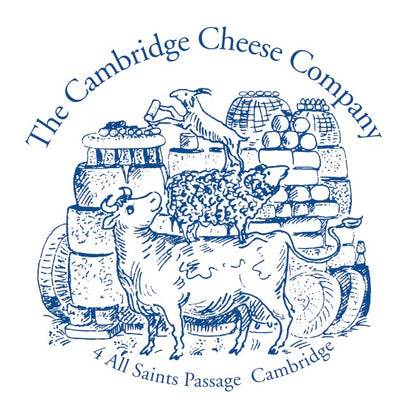Chris and Jeff Reade were first generation farmers in Somerset who, alongside raising a family of four boys, worked hard milking a small herd of cows. It was quickly apparent however that milk supply was outweighing demand across Europe and that their milk wasn’t needed. After a holiday, in 1979, to Mull, the couple ended up buying a few acres of land as a contingency plan or escape route, but in doing so, also discovered that milk supply on the island was very erratic. After the beautiful ruin of ‘Sgriob-Ruadh’ next door came up for sale three months later, they decided it was fate to buy it and relocate. The entire move ended up taking 2 years, with lots of trips up the motorway in a little lorry. At first, the family had just 10 cows and ran a milk round in Tobermory but, in 2000, they built a proper dairy building and moved to cheese production with a herd of 130 cows. The farm is now owned and run by their eldest son, Brendan, and third son, Garth.
Isle of Mull Cheddar has a unique flavour and story behind it as the Freisan herd of cows are fed on an unusual diet of fermented grain from the nearby Tobermory whisky distillery as well as fresh, green grass on the island. The cheese is produced in a traditional way on the only dairy farm on the island.
The Reade’s started building their water turbine in the early 1990’s; as a small company they couldn’t afford for another company to come in and build it for them so decided to construct their own. The first electricity was generated in 2010 and it now powers the farm, distillery and Island bakery, as well as a few houses. They export 50% more electricity than they use, which is an excellent achievement. Whilst building, they also turned some wet ground into a pond which now houses brown trout, herons and otters. Alongside their water turbine, they have a small wind turbine and are now also introducing solar panels.
When the dairy moved to cheese production in 1999, they needed to generate more heat, but found that diesel boilers were very expensive. The forestry commission was growing trees all around the dairy, so they settled on a log burner instead. It produced enough heat for each day, but not fast enough. This led to them installing a hot water tank and pool for warm water, which now works with a heat exchanger to store excess heat in a thermal battery and move the heat around to where it is needed. By 2017, the log burner was becoming a chore as the logs were heavy and large. A wood chip boiler was installed and then the distillery was built on top of it. All the waste whey from cheese making is now distilled into gin using the wood chip boiler. All the surplus heat goes into making cheese.


